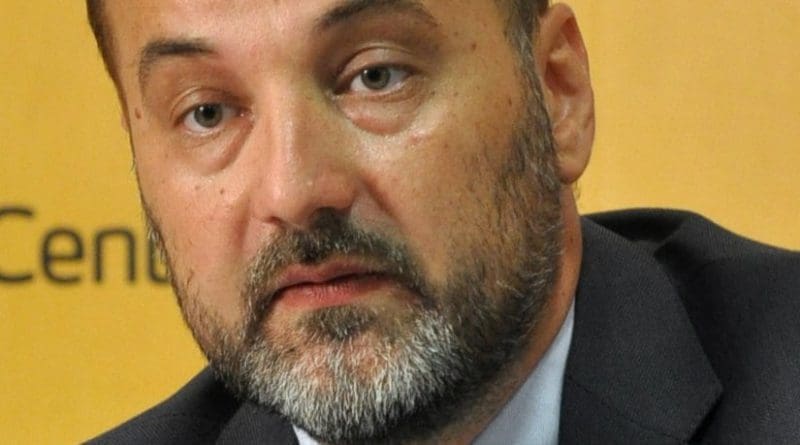Serbia: Ombudsman Jankovic Resigns To Run For President
While most political parties in Serbia, including the ruling Progressives, have yet to name their candidates for April’s presidential elections, Sasa Jankovic officially launched his presidential campaign on Tuesday.
“In the name of the citizens, I want to be the president of Serbia as the protector of all of us,” Jankovic said.
As Ombudsman, he has crossed swords with the Serbian authorities on many occasions.
He made it clear several months ago that he will run for the presidency after a number of writers, artists and public figures urged him to stand in November.
He has also received support from two opposition parties, the New Party, led by Zoran Zivkovic, and the Democratic Party. Together, these two parties won about six per cent of the votes in last April’s general election.
But in recent months he has been accused by pro-government media and activists of using his public office for his personal political campaign, although he denied this.
“I will run to bring back the smile, the dignity and the future of Serbia,” he wrote on Twitter on Tuesday.
Analysts have suggested that Jankovic could count on the backing of many voters who are not party-affiliated.
However an opinion poll published last week by Faktor Plus agency suggested he could count on around eight per cent of the vote, and would be soundly beaten by any candidate backed by the ruling Progressive Party.
Jankovic announced that he would resign on Monday at an event marking the ten-year anniversary of the establishment of the Ombudsman’s office in Serbia.
“Serbia now has an institution. Institutions are things that preserve the dignity of citizens, so preserve them. Protect the Ombudsman’s office, we will need it, as I’ve finished my mission here,” he said.
When he first said he would running for the presidency, in December, Jankovic also hinted that the current ruling parties had undermined the rule of law and the constitution.
“For citizens, it would be the worst for Serbia to enter the EU as it is, without the rule of law and with a corrupted, silenced media and devastated institutions,” he said at the time.
In recent years he has had a series of differences with the Progressive Party-led authorities.
He came under fire in January 2015 after he filed criminal charges against two military policemen on suspicion that they had attacked members of a special police unit, the Gendarmerie, while on duty.
The incident occurred during the Belgrade Pride march in September 2014 when members of the Gendarmerie clashed with two members of the military police, along with Prime Minister Aleksandar Vucic’s brother, Andrej Vucic, and Predrag Mali, brother of Belgrade mayor Sinisa Mali.
Jankovic also caused controversy when he stated in a report last year that the Belgrade police had refused to respond to calls from people who saw around 30 masked men armed with baseball bats and equipped with diggers tearing down buildings on the Belgrade riverbank and allegedly beating up local residents.
The government has shrugged aside accusations that the diggers went in to clear the terrain for the controversial Belgrade Waterfront redevelopment project.
Jankovic crossed swords with the government again in November 2016 when he imposed oversight measures over police in the south-western town of Novi Pazar who had refused to execute court judgments ordering the demolition of illegally-erected buildings.

